A Wining Cost Estimate
That Helps You To Win More Electrical Construction Projects

Backup Power Generators are a must-have for when the electricity supply is interrupted. They come in all shapes and sizes – from tiny portable models to more permanent standby systems.
These generators are rising in popularity due to the frequent power outages caused by natural disasters, broken transmission lines and repairs. Costs depend on the type and size of generator, fuel preference, permits and labour charges. Residential generators range from $1,500-$15,000 and commercial generators can cost up to $30,000.
Before buying a backup generator, it’s essential to make sure you comply with building codes and zoning regulations. Hire a licensed electrician or installer and get the necessary permits.
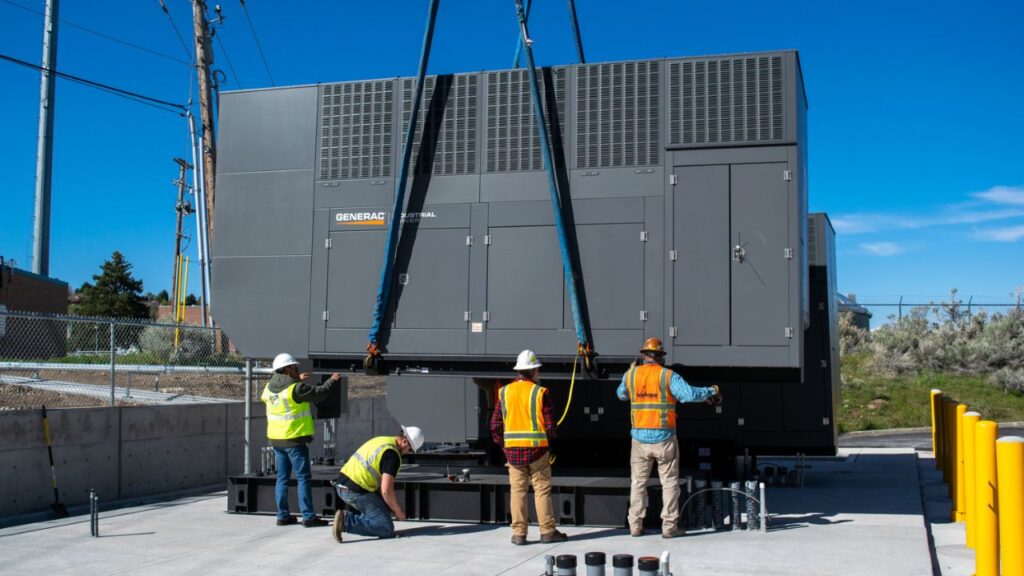
New York City is a perfect example of how to integrate backup power into buildings. After Hurricane Sandy in 2012, the Building Code was revised to require generators in certain flood-prone zones – no additional costs incurred. Bottom line: investing in a backup generator isn’t just about maintaining power during emergencies, it’s also about maintaining your wallet.
To estimate the cost of installing backup power generators, you need to consider several factors that affect the pricing. Discussing the Factors Affecting the Cost of Installing Backup Power Generators with consideration to the Types of Generator, Fuel Type, Power Output Capacity, Electrical Wiring, and Installation Site can provide you with the necessary information to make an informed decision on the overall cost estimates.

The type of backup power generator you choose is a key factor. It will have an effect on its installation cost.
A table showing different types of generators and their respective costs is vital. This table has diesel, natural gas, propane and gasoline generators with columns like price range, power capacity and fuel efficiency. Compare the factors to your needs and decide the best type of generator.
Remember, other than installation costs, operating and maintenance expenses must be taken into account. Each type has special fuel and maintenance needs that differ from others.
Pro Tip: When picking a generator type, consider multiple factors. This can influence total costs including installation, maintenance and fuel consumption. Fuel up with diesel or propane, but remember: the generator cost isn’t the only thing that’ll make your wallet ache.
When it comes to powering backup generators, cost is influenced by several factors. Fuel type is a vital one. Let’s examine the different types of fuel and how they affect pricing.
Fuel Type | Price per Unit |
|---|---|
Gasoline | $2.50 – $4/gal |
Diesel | $2.50 – $5/gal |
Natural Gas/LP Gas | $0.70 – $1/therm (100 cubic feet) |
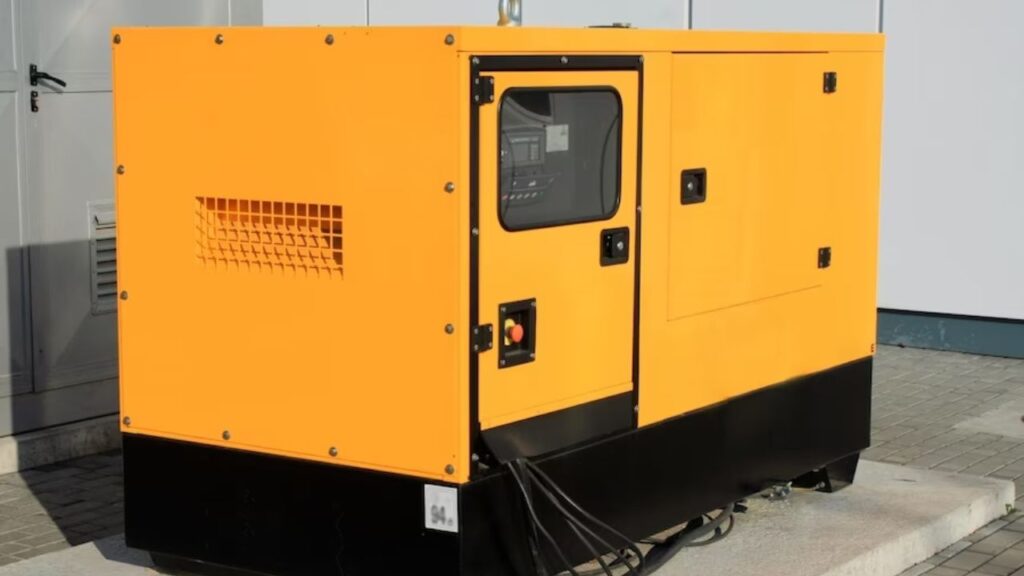
The prices vary with availability and demand. Consider not only cost, but also maintenance and generator efficiency. Environmental impact is a factor for diesel which emits more than natural gas or propane.
In WWII, fossil fuels were scarce, so people used biofuels like wood chips and charcoal to power backup generators. This proves humans can adapt in difficult times. When selecting a fuel, diversified options are essential.
Get the right generator and keep those lights on during a blackout, or risk a real-life horror movie!
Backup power generators have a factor known as Power Output Capability, which affects their cost. To get a better understanding, we can make a table with two columns:
Power Output Capacity (kW) | Cost Range ($) |
|---|---|
Min-Max Power Output Capabilities | Cost Range |
Another factor to consider when selecting a generator with higher power output is the brand and supplier reputation. A friend of mine bought a 12 kW generator a few years ago to use in his office. It worked alright during outages, but he realized there were larger-sized generators available that could’ve been better suited for his needs and budget.
Lastly, when you’re wiring your generator, make sure it looks neat. Else, it might just make a mess when it kicks in.

Electrical connectivity system installation for backup power generators is a must. Wiring layout and design must be considered for successful connection to the building’s main distribution panel. Plus, the wiring chosen affects the cost of installation. Safety codes and regulations must be adhered to. Choosing conduit wiring or cable wires will also affect costs. To get maximum performance, use high-quality materials for the electrical wiring. Consider potential future upgrades, too. For best results, seek professional help and advice when selecting electrical wiring for your generator project. Get expert guidance throughout the installation process. Don’t miss out – contact a pro today!
Location is key when it comes to installing a backup power generator. Various geographic and environmental factors must be taken into account. Factors such as the distance from load centers, infrastructure accessibility, terrain type, and weather patterns need to be considered.
Urban areas may require permits from local authorities and pose restrictions on placement. Remote sites can incur additional costs for specialized transportation. Potential hazards in the area must also be taken into account to ensure safety and operations.
Studies show that commercial installations typically average between $20,000 and $50,000 per megawatt of capacity. Overall, it’s essential to find the right installation site to ensure optimal functionality, while avoiding extra costs and potential hazards.
To break down the cost of installing a backup power generator in a residential setting, you need to consider several factors. In order to estimate the total cost, start with determining the generator’s cost, installation labor cost, electrical permit and inspection cost, and fuel source and storage cost. These sub-sections will provide a complete overview of the expenses involved in setting up a backup power generator in your residential space.
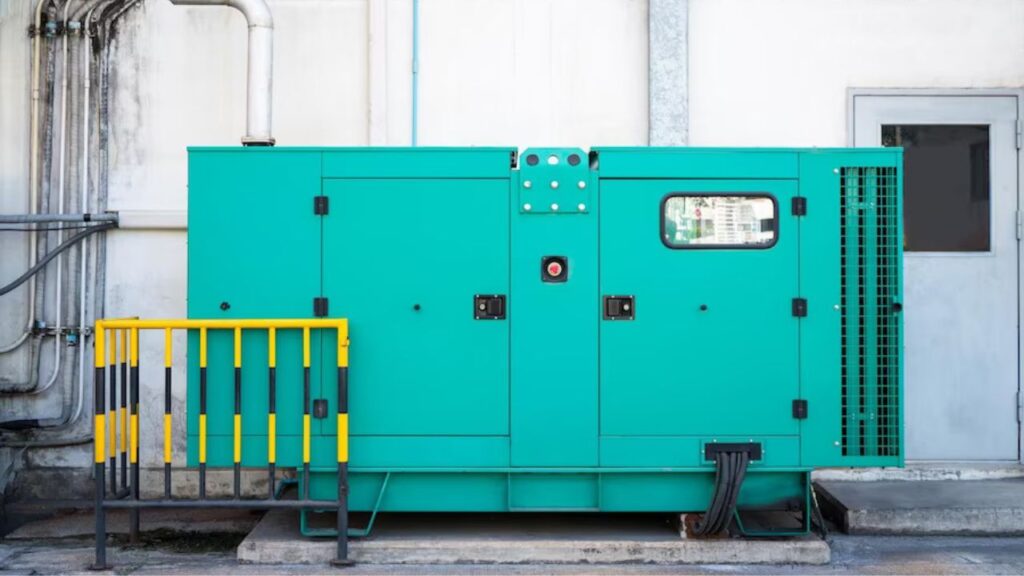
The expenses involved in setting up a Residential Generator may seem overwhelming. It’s important to know the costs and their breakdown.
Generator Unit: $1,500 – $15,000
Installation Fees: $3,000 – $7,000
Electrician and Plumbing Work: $100 – $200 per hour
These costs can vary depending on your home size and requirements. Don’t forget permits, inspections and maintenance!
Experts recommend getting at least three quotes from trusted suppliers. Homeadvisor.com states that “on average, homeowners spend between $3k-$11k for a generator installation.” Doing research can help you identify unique cost factors before you get started. Installing a generator is a serious task – make sure you’re ready!
Residential generator installation usually involves a labor cost component. This cost covers the time and expertise needed to integrate the generator with existing electrical systems. It varies depending on unit size, location, wiring complexity and local rates.
Labor costs include site preparation like wiring for transfer switches, fuel sources and final testing. Additional fees may apply if special permits are needed or advanced scheduling is required.
It’s important to find an electrician with experience in this type of work. Improper installation can lead to malfunctioning equipment or dangerous situations. Get multiple quotes before making a choice.
Take your time and choose an appropriate installer – one who is experienced and qualified enough to do a great job at a fair price. Responsible homeowners fork over cash for permits and inspections.

For installing a residential generator, approvals and inspections from the electrical department are essential. An Electrician’s permit and inspection are necessary before installation.
To give you an idea of expenses, here’s a table with details:
Cost | Description |
|---|---|
$75 – $500 | Electrical permit fee |
$160 – $200 | Electrical inspection fee |
These fees can differ by location and size of generator. Other fees, like service charge or blueprint requirements, are not included in the table.
It’s vital to know all cost breakdowns for a residential generator to stop any financial burden. Being informed about these costs helps homeowners make better decisions. Don’t be scared of Electrical Permit & Inspection Costs! They’re necessary expenses that guarantee safety. Investing more upfront saves money in the long run, avoiding future issues or penalties. Stockpiling gasoline has never been more responsible…or more likely to get you on the FBI watchlist.
Figuring out the expenses related to setting up a residential generator? Fuel source and storage cost is a must-consider. For an efficient and risk-free power supply system, the right fuel type and good storage arrangements are key.
A table can help you break down the costs. Fuel type, storage capacity, cost, maintenance fees, salvage value of tanks (where applicable)… it’s all in there.
In summary: residential generator installation involves finding the most suitable fuel and storage, with associated costs. Homeowners have the data to make a choice based on their energy needs.
To sum up, a table with factual data regarding the Fuel Source and Storage Cost for Residential Generator Installation can help customers save costs and stay powered up.
To break down the cost of commercial generator installation for your business, you need to consider several factors. With “Estimating the Cost of Installing Backup Power Generators: Residential and Commercial” as a guide, this section will cover all the costs you need to account for in order to install a commercial backup power generator, including generator cost, installation labor cost, electrical permit and inspection cost, fuel source and storage cost, and additional costs for large commercial generator installations.
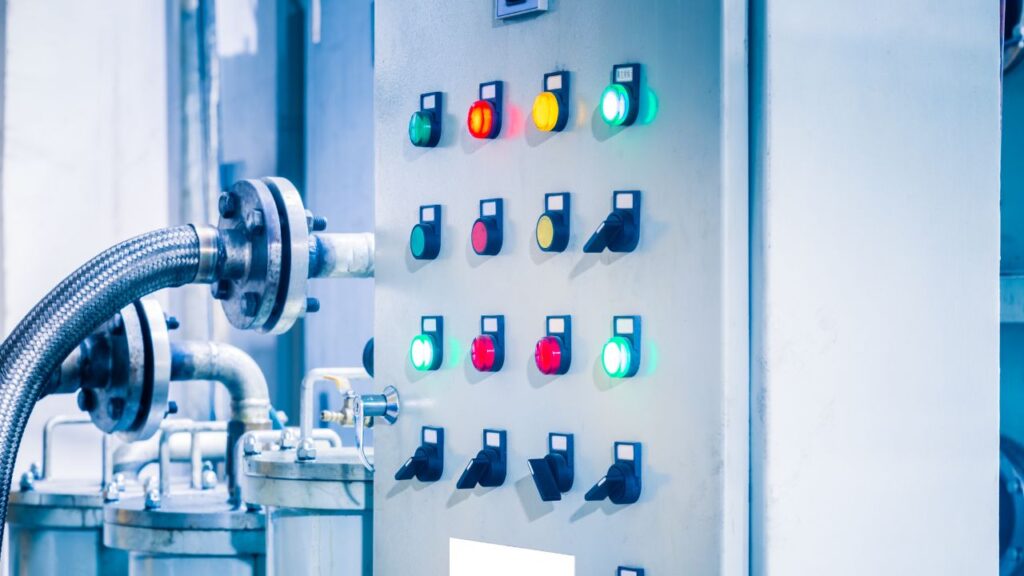
To work out the expense of setting up a commercial generator, various cost elements must be taken into thought. A key factor is the initial cost of buying the generator. Plus, other major costs that will affect the complete expenditure comprise of: installation fees, maintenance fees, permit costs, and fuel bills.
Look at the below table for an expected breakdown of Generator Costs with appropriate columns and precise data:
Type of Cost | Estimated Cost Range |
|---|---|
Generator | $15,000 – $50,000 |
Installation | $3,000 – $7,500 |
Maintenance | $500 – $2,000/yr |
Permits | Varies |
Fuel | Depends on Usage |
It’s important to think about certain details, such as if underground wiring is essential, or any other improvements are needed, before estimating a total installation and operational budget.
Research by http://www.energy.gov states that power outages can cost businesses thousands of dollars an hour. It is important to consider using generators as a backup power source in case of any electrical shortage in the vicinity.
Installing a generator can be pricey, but don’t worry, the labor cost will only be a strain.

Installing a commercial generator has several factors to consider. Labor costs can vary depending on the size and complexity of the project. Fees are determined by either the hour or the whole project. Experts have specific steps to follow, like preparing the site, wiring connections, and testing equipment. The cost may also include permit application and inspections.
Sometimes, unexpected issues may come up, increasing the labor fees. It’s best to check with companies first for an accurate quote. Don’t forget to factor in professional installation services for optimal performance and safety. Inspections can take longer than expected, so make sure to choose wisely!
Obtaining installation permission and validating generator installation requires an expense for Electric Permit and Inspection. This cost ensures it’s all up to code and safely installed.
We’ve created a table showing the average cost for Electrical Permit and Inspection. It has three columns: ‘Cities’, ‘Residential Cost’, and ‘Commercial Cost’. This cost varies based on location. Bigger cities like Los Angeles and NYC have higher costs than smaller ones like San Antonio or Houston.
In some places, commercial and residential requirements differ. In Beverly Hills, a licensed electrician must get the permit or do the inspection for generator installation in a commercial building. This likely adds another expense.
We suggest business owners research their region for any permits they need before initiating the installation process. This way, they can identify any extra expenses like equipment rental fees or transfer switch upgrades. It’s crucial to avoid surprise expenses and delays due to lack of permit knowledge. Time to start saving up! Diesel fuel is the only option here.
Cities | Residential Cost | Commercial Cost |
|---|---|---|
Los Angeles | $500 | $1,000 |
New York City | $400 | $800 |
San Antonio | $200 | $300 |
Houston | $300 | $500 |

This commercial generator installation needs fuel, and there’s a cost for it. That includes getting the fuel like diesel or natural gas, and the infrastructure for storing it.
To make sense of this, Table 1 below is here to help. It has info on the type of fuel, cost per gallon/unit, and storage tank capacity.
Fuel Type | Cost per gallon/unit | Required Storage Tank Capacity (gallons/units) |
|---|---|---|
Diesel | $2.50 – $4.00 | 500 – 10,000 |
Natural Gas | $0.50 – $1.00 | Dependent on usage |
But, additional expenses may come up due to factors like location and permits for large quantities of fuel.
It’s important to plan out the fuel procurement and storage. That way, the generator will work optimally. Consider bulk buying or contracting with suppliers for good prices and small storage tanks.

Companies looking to install commercial generators have costs beyond the price of the generator itself. Installation fees, permits, and ongoing maintenance costs all need to be taken into account. Here’s a breakdown of these costs:
Expense | Estimated Cost |
Installation Fees | $5,000 – $20,000+ |
Permits and Inspections | $500 – $2,000+ |
Fuel Source Connection | $2,500 – $10,000+ |
Maintenance and Repairs | $1,000-$5,000 + annually (depending on size) |
Unexpected costs may also arise during installation and maintenance. To prevent long-term financial setbacks, budget and plan accordingly. One company found themselves over budget due to unanticipated issues. But they adjusted their plans and completed the installation on time.
They say, “Great power comes with great responsibility,” but with a backup power generator, it just means more bills.
To estimate the cost of maintaining and operating your backup power generator for your home or business, delve into the “Maintenance and Operating Costs of Backup Power Generators” section in our article titled “Estimating the Cost of Installing Backup Power Generators: Residential and Commercial.” This section briefly introduces three sub-sections, including “Routine Maintenance Cost,” “Emergency Maintenance Cost,” and “Fuel Cost,” as solutions for understanding the overall costs of running a backup power generator.
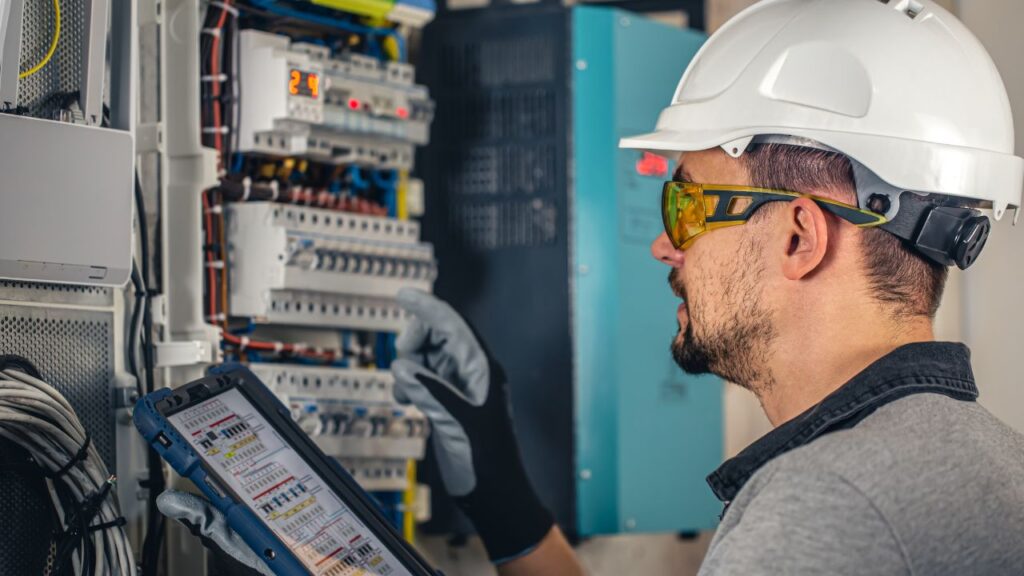
Regular Upkeep Expenses – Who Knew?
Oil changes, filter replacements and general maintenance checks are essential for keeping your generator functioning correctly. The frequency of maintenance depends on how often it’s used. Older generators may need more servicing and repairs. Plus, costly repairs could be needed if any components fail or break down.
It’s vital to keep up with regular maintenance. Neglecting minor problems can cause bigger ones later. Regular upkeep will avoid expensive repairs and keep your backup power supply in perfect condition.
Did you know? Investing in a high-quality generator upfront can reduce maintenance costs. High-quality generators last longer and require fewer repairs than low-quality ones.
Need emergency maintenance? Think of it as a mini heart attack for your wallet.
Power Outage Maintenance Costs can be a huge expense. If your generator malfunctions and you need emergency repairs, costs can stack up fast! Especially if there’s a shortage of parts or technicians. Delayed maintenance can even cause more damage.
To avoid Emergency Maintenance Costs, regular preventive maintenance can help. Professional servicing and testing every 6 months. Oil changes every 100 hours of operation time. Inspect the fuel system and battery monthly. And get to know your service provider – they could help you out in an emergency!
Don’t forget that not doing regular maintenance could void warranty coverage. Investing in routine maintenance now could save you a lot of money in the long-run.
Don’t let power outages stop you. Get in touch with your local service provider and book preventive maintenance services to minimize Emergency Maintenance Costs.

Fuel costs are an essential expense when it comes to backup power generators. The type of generator you select will determine fuel needs and refilling frequency. Fuel prices range depending on the type and market changes.
When selecting a generator, look at the fuel consumption rate and other costs such as maintenance and servicing. Some may have lower upfront costs but higher operating and maintenance fees over time.
Fuel costs are only one piece of the puzzle. Other factors to consider are generator size, wiring and electrical systems, permits, and safety regulations. It’s wise to consult an expert in generator selection and installation to help you make the best decision.
Think of fuel costs and other expenses when choosing a backup power system. That way you can pick one that fits both your budget and energy requirements.
The total cost of installing and operating backup generators differs depending on many factors such as size, type, fuel source, installation expenses and more. To make an exact calculation, we consider all variables linked to the process. To make this easier, we created a table that outlines the estimated cost of residential and commercial backup power generators based on size and fuel source.
Investing in a reliable generator is vital for guaranteeing continuous power during crises. Apart from the installation and purchase costs, extra expenses must be taken into account like regular maintenance costs and operational expenses, for example fuel costs.
Our detailed table offers an exact estimation of the total costs of installing and running backup power generators. It is essential to consider all related elements before investing in a backup generator.
Don’t miss out on the advantages of having a backup generator for your home or business! Investigate the best deals by analyzing our cost estimation table now.
The cost of installing backup power generators can vary widely based on many factors such as generator size, fuel type, distance from the main electrical panel, and any necessary electrical upgrades.
The size of the generator you need depends on the electrical load that will be placed on it during a power outage. Our team can evaluate your specific electrical needs to recommend the appropriate size generator for your property.
A standby generator is designed to remain permanently installed at your property and will automatically turn on when your power goes out. A portable generator is designed to be manually moved to where it’s needed and will not turn on automatically.
Backup power generators require regular maintenance such as oil and filter changes, battery replacement, and testing. Our team can provide maintenance services to ensure that your generator is running properly at all times.
The length of time a generator will last during a power outage depends on the size of the generator, the amount of electrical load being placed on it, and the amount of fuel available. Our team can provide estimates on how long your generator will run under different conditions.
Depending on the size of the generator, it may be possible to power your entire property during a power outage. However, it’s important to evaluate your specific electrical needs to ensure that your generator can handle the load. Our team can provide guidance on this matter.
Here I am going to share some steps to get your electrical construction cost estimate report.
You can send us your plan on info@estimatorflorida.com
Before starting your project, we send you a quote for your service. That quote will have detailed information about your project. Here you will get information about the size, difficulty, complexity and bid date when determining pricing.
We estimate electrical construction cost and prepare a detailed report for your project. At last, you finalize the report and finish the project.
561-530-2845
info@estimatorflorida.com
Address
5245 Wiles Rd Apt 3-102 St. Pete Beach, FL 33073 United States
561-530-2845
info@estimatorflorida.com
Address
5245 Wiles Rd Apt 3-102 St. Pete Beach, FL 33073 United States
All copyright © Reserved | Designed By V Marketing Media | Disclaimer